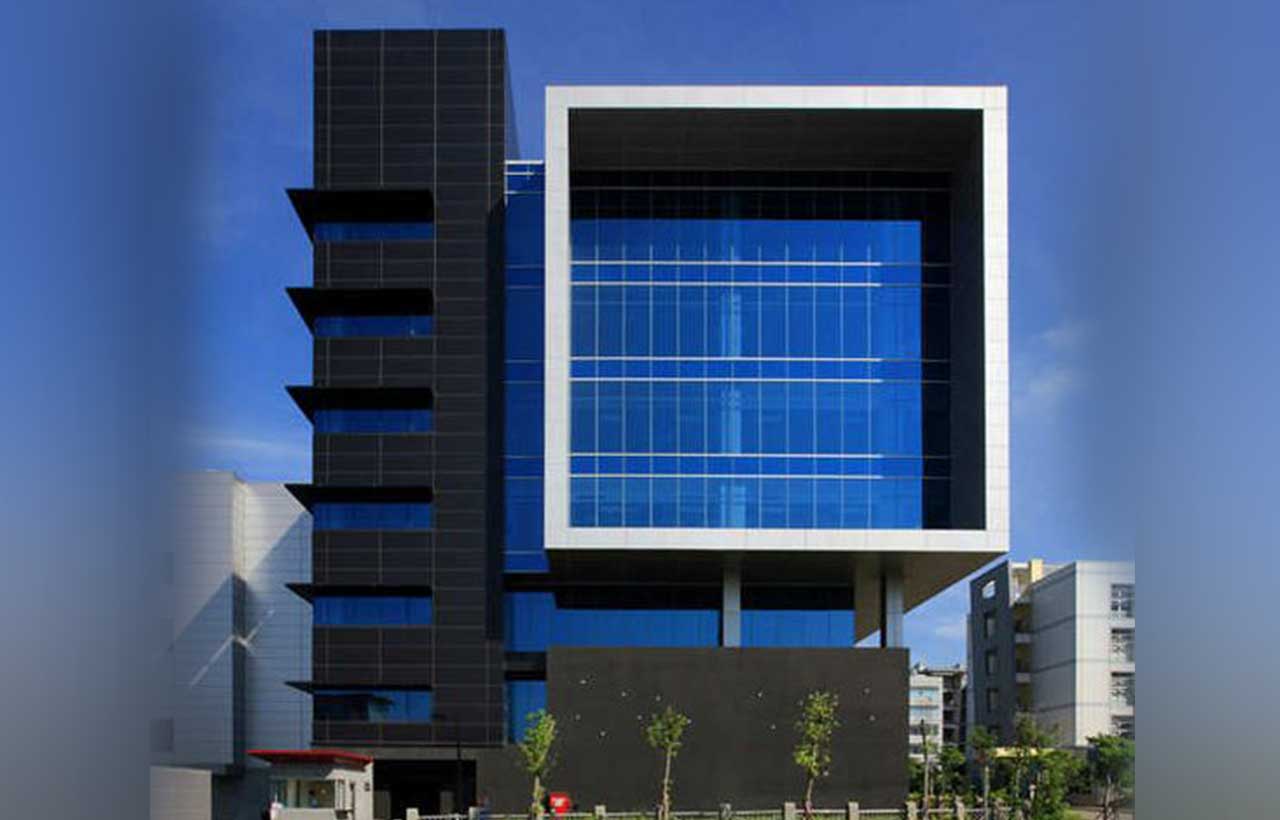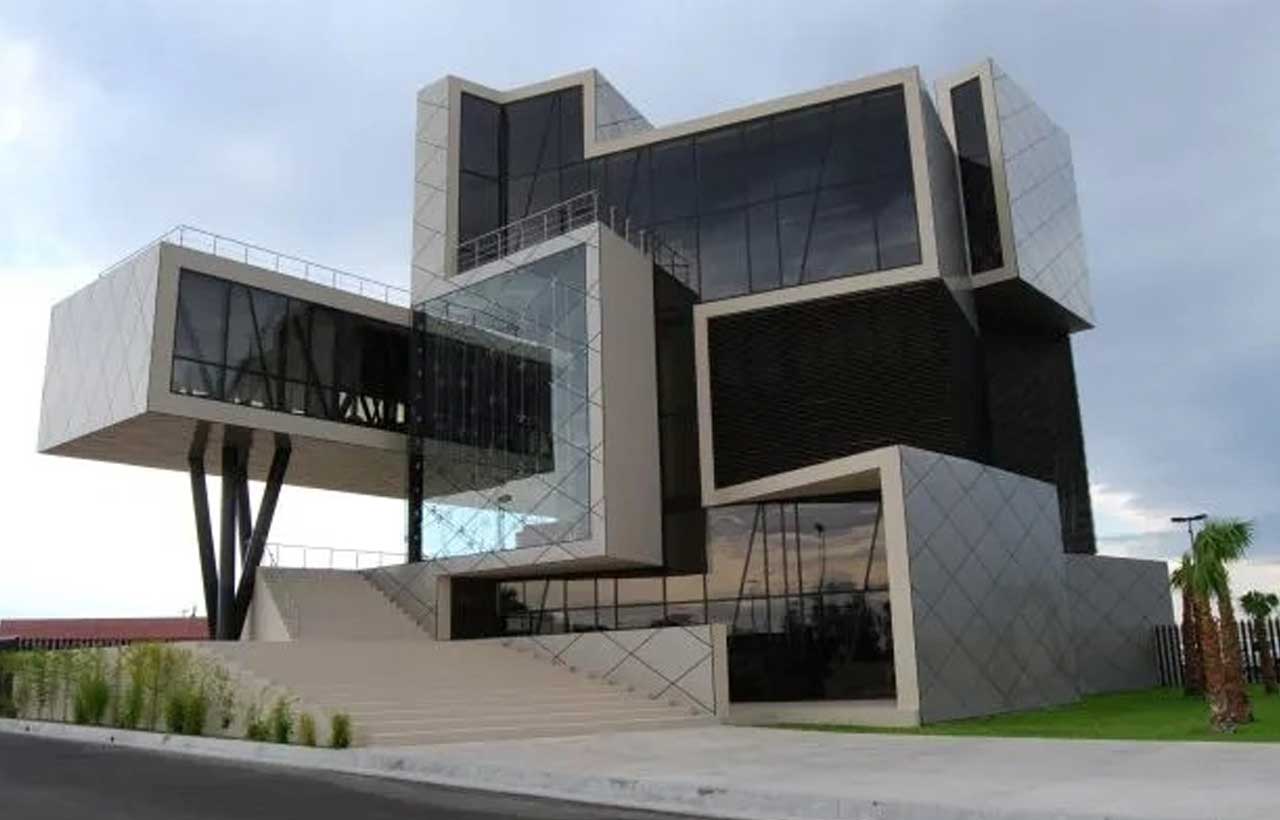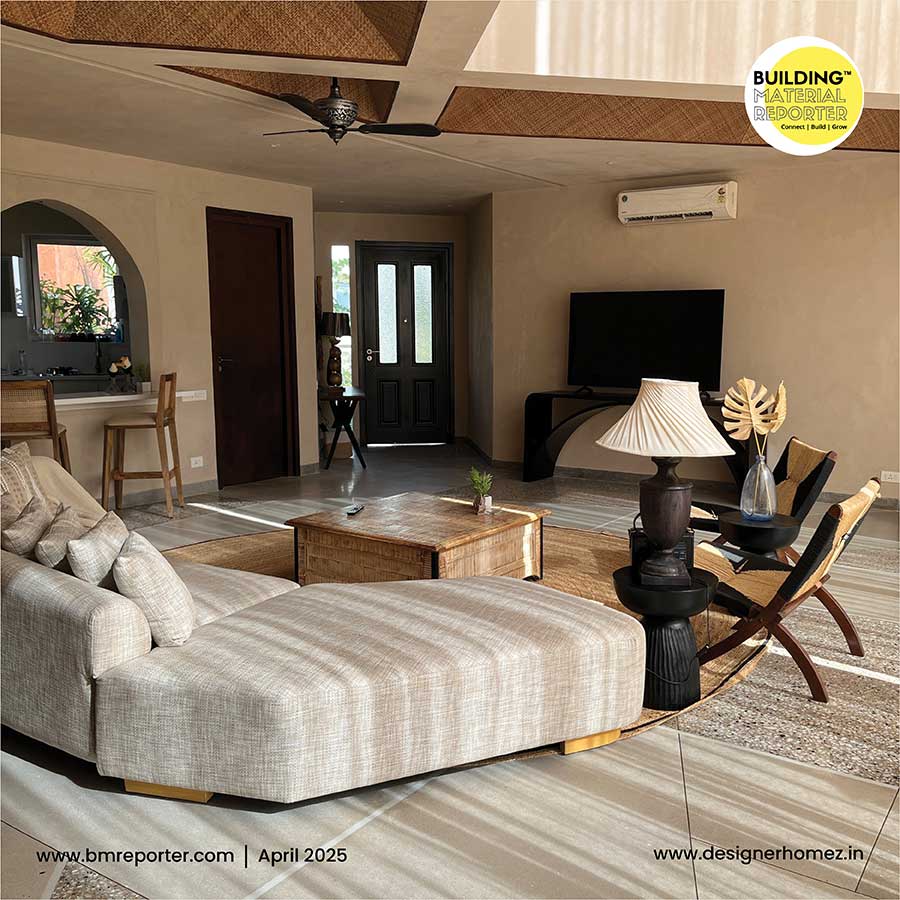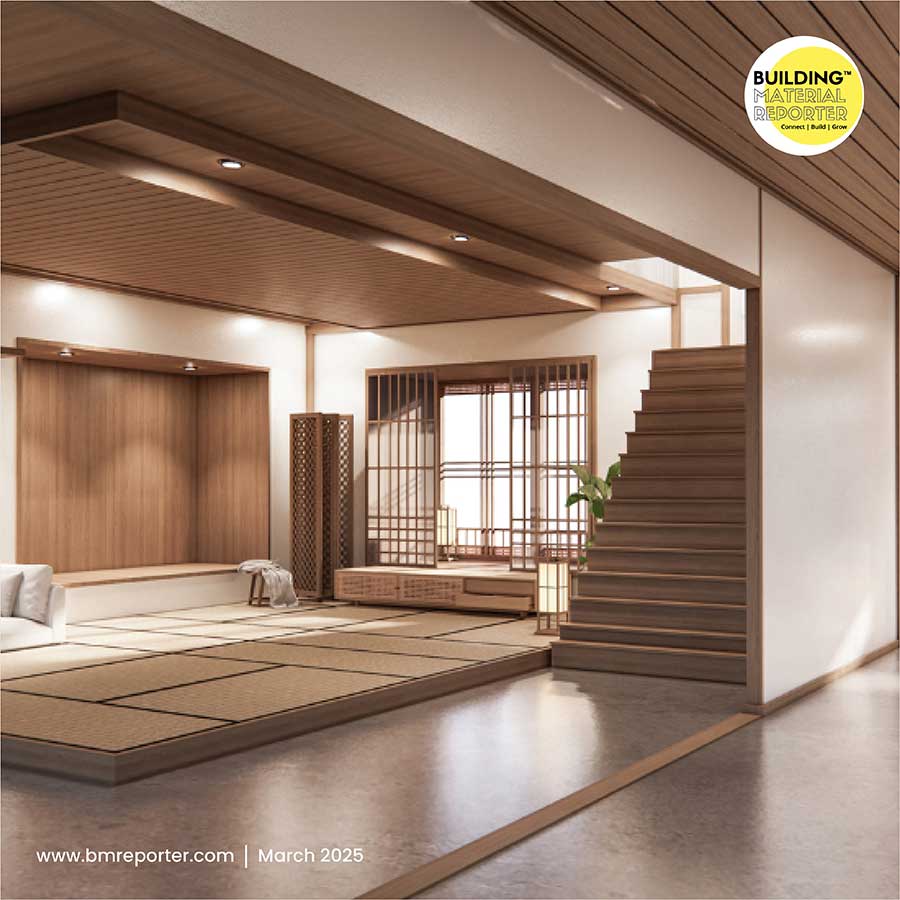A Comprehensive Guide to Choosing the Best Insulation for Your Home
- October 15, 2024
- By: Yukti Kasera
- INFLUENCERS
 Insulation is essential for homes and it comes in various applications. Insulation is a shield that protects the building against heat loss and heat gain. However, it is very important to understand the importance of home insulation. Proper insulation in any building construction can enrich the thermal performance of the building. In this exclusive article by Building Material Reporter, discover some real insights about home insulation.
Insulation is essential for homes and it comes in various applications. Insulation is a shield that protects the building against heat loss and heat gain. However, it is very important to understand the importance of home insulation. Proper insulation in any building construction can enrich the thermal performance of the building. In this exclusive article by Building Material Reporter, discover some real insights about home insulation.
Understanding the Importance of Home Insulation
There are a lot of advantages of home insulation in smart homes and hence the importance is quite justified. Insulation enhances the comfort level of the building, making it sustainable and energy efficient. Pepper home insulation can help the regulation of temperature inside the homes, making the space apt in extreme environmental conditions. Insulation can keep the home cooler during summer and vice versa. There comes acoustic insulation as well which helps in sound controlling. This enables privacy and protects the space from external sounds.
Home insulation creates a shield from moisture as well. Electrical insulation allows the home to be safe from any electrical hazards. Any insulated building uses less energy which automatically reduces carbon footprint.
Types of Insulation Materials: Pros and Cons
Insulation helps to enhance the performance of the building and maintains the components for a longer period of time. There are many types of insulators available in the market. Here are some common types of insulation materials available.
Thermal Insulation Materials: Thermal and heat insulation materials reduce the heat transfer. These materials reduce the flow of heat from external to internal environments or vice versa. In this regard, the quality of the insulation material also matters a lot. It should be economical as well as energy saving. Thorough observations have shown that around 50% of the heat can be reduced through ceilings and 12% through glass. But while choosing the thermal insulators, one should check the costing as well as the energy efficiency quotient of the material. Polyurethane, glass wool, and cork are some of the common thermal insulation materials. Talking about the cons, thermal insulators share some disadvantages as well. Their installation might be expensive. Also, some like extruded polystyrene can be harmful for the environment too and some like glass-fibre batt can be harmful for health.
Acoustic Insulation Materials: Eavesdropping is not possible with acoustic insulation materials! That’s true. Materials come with acoustic properties as well, allowing proper insulation of sound. Sound can travel through air and waves. Prevention of transmission can be done through materials like acoustic tiles, glass wool panels and cork or rubber compressed panels and many more. The major pro of this insulation is that it ensures privacy and peace in the ambiance. Acoustic insulation materials can be risky in case of any emergency. Also, these materials can also trap moisture and sometimes cause noise leakage too if not installed properly.
Waterproofing Insulation Materials: Waterproofing is very important for any building construction. If proper waterproofing is not there, then the buildings might face major consequences. Moisture can hamper the elements of construction and building materials as well. Waterproofing Insulations serves as the most important element in the construction, because of its advantageous properties. Organizations like Waterproofers Association of India, are working strategically for the promotion of waterproofing insulation materials and construction chemicals. Waterproofing insulators like asphalt, bitumen, flancoat etc. are commonly used for the waterproofing. The cons related to waterproofing insulation is that it can be a bit expensive affair. And also with so many brands in the market it is very difficult to assess the authenticity.
Radiation Insulation Materials: The insulation materials are nowadays regarded as the "Green Home Policy". The insulation materials also provide protection against radiation energy. Electromagnetic waves such as light, UV, X-Ray and Gamma are also very harmful for the building as it affects the overall performance. Radiation insulation materials require a medium to get transferred. Electrical insulators do not allow the flow of electromagnetic waves. Materials like wood, plastic and ceramic are often termed as the insulation materials. Radiation Insulation Materials provide a lot of advantages ike health safety, energy efficiency etc. These insulation materials have a few cons as well. These are costly and without proper knowledge this can’t be installed.
Factors to Consider When Opting Insulation
Although unseen, insulation is pivotal for any home construction. However, there are a lot of factors to be considered while opting for insulation. Here are a few of them.
The Application of Insulation: Choosing the right insulation is the first step towards building protection and conservation. There are a variety of insulation materials seen on walls, floors, HVAC etc. the application depends on the sound factor, weather, climatic conditions etc.
Installation Process: Proper installation of insulation materials should be assured. Knowledgeable labor force, material information, timeline required- everything should be considered. Some materials can be installed directly but some might require equipment or professional help.
Selection of Material: Choosing the right type of materials is mandatory for any kind of insulation, whether waterproofing, radiation, thermal or acoustic. Because of the unique qualities, the same material can have different uses and also the material can have different qualities also. Consider wholesome materials which are installation friendly.
Thermal Resistance: When going for thermal insulation, efficiency can be measured with the thermal resistance. This is known as the R-Value. Higher the R-Value, better the performance of the insulation. Choosing the materials with proper R-Value is truly important.
Durable: The materials for insulation should be durable that can withstand moisture, heat and other waves. This will enhance the longevity of the building.

Insulation for Different Areas of Your Home
Different arenas require different kinds of insulation. Here are some key areas where insulation hacks are to be taken care of:
Attic: Roof House or Attic insulation in any building construction is very important as it protects the home from thermal fluctuations. Materials with the best R-Value should be taken for the atyic insulation. Also, air sealing in terms of insulation should be done, promising adequate ventilation also. Some attic insulated materials like fibreglass, spray foam etc. provide good insulation.
Walls: Wall Insulation is the pioneer in any building. It promotes energy efficiency, comfort and building performance, whether home or office. Wall insulation helps in maintaining the room temperature and also provides acoustic benefits. Commonly used wall insulation materials include: mineral wool, acoustic panel, fiberboards and much more. Wall insulation also protects the home from moisture and seepage.
Floors: Floor insulation contributes to energy efficiency. By maintaining thermal insulation, they allow sustainability. With moisture control formulations, they prevent dampness inside the building. Floor insulation also provides acoustic and anti-radiation benefits which can allow shielding of the building in terms of sound and waves.
Basements and Crawl Spaces: By adding insulation to the basements and crawl spaces, the overall efficiency of the building can be improved. Air sealants, moisture control boards, waterproofing (specially of the crawled spaces) are some important insulation construction materials.
Eco-Friendly Insulation Options
Sustainable and safe, eco-friendly materials for the building is of new importance in today’s date. Cork is considered to be the best insulation materials for flooring, wall and acoustic designs. It provides aesthetic look as well apart from the functional benefit. Sheep wool is fire resistant and also absorbs moisture. Cellulose made from recycled materials can also be energy efficient. Spray foam is yet another eco-friendly option for the home.
Cost vs. Efficiency: Finding the Right Balance
There should be a balance between cost and efficiency while choosing the insulation materials. Insulation with high R-Value should be chosen. This can initially be costly compared to traditional options but they come with guarantee. Also, initially if we go for cheap options, then this might be a problem as later this might be problematic. Spray foam, fibreglass panels etc. are some insulation materials which are cost effective as well as efficient. So, there should be a balance while choosing the materials, also depending on the area where it needs to be installed.
DIY Insulation vs. Professional Installation
This has its own pros and cons. Just like DIY home decor, DIY insulation can also be done. Insulation installation can be a DIY project if the area is not that big and open. Unfinished projects might cause problems later if one is doing it by himself. Although hiring a professional might be expensive, the knowledge of the products which he will have will be up to mark. They can complete the job faster and more effectively. Thus, depending on the integrity of the project, one can opt for DIY or professional service.
Common Insulation Mistakes to Avoid
Insulation of the building should be done error free. Here are some common insulation errors which people commit:
- Avoiding ventilation: While installing insulation, ventilation is often ignored. Materials which provide good ventilation should be installed which can make the space energy efficient as well.
- Poor Materials: Just to avoid the material expense, people often opt for cheaper ideas. This can later affect the performance of insulation, making it a waste.
- Poor Installation: Sometimes without proper knowledge installation of the materials can be done abruptly. This can make the insulation go haste, without any usage.
- Removing Old Ones: Insulation techniques should be backed by innovation. Old methods take a lot of time and also it can be less effective. This mistake should be avoided.
Maintaining and Upgrading Your Home’s Insulation
Upgrading the homes with proper insulation and maintaining it is very essential in a way to enhance energy efficiency and cost effectiveness. Insulation is a boon for the building as it reduces energy losses. This also requires an upgrade. Here are some tips to be kept in mind to maintain the home insulation.
- Sealing of Gaps: Gaps can be very risky in space, allowing air and moisture to pass. These areas should be sealed properly by using sealant or foam insulation.
- Moisture Control Check: Moisture can reduce the overall effectiveness. For fixing moisture, check on the humidity of the space and use dehumidifiers to make it controlled.
- Hire a Professional: Insulation contractor or professional should be hired to inspect the insulation of the space. Professional maintenance can enhance efficiency.
- Check for Air Leaks: Air leaks should be checked carefully. In the electrical outlets and plumbing, this should be checked properly and maintained for good insulation.
How Insulation Impacts Energy Bills and Comfort
Insulation has a lot of benefits. Apart from the sustainable and energy efficiency advantages, it also aids in cost effectiveness too. Thermal insulation for interior solutions can reduce the heating and cooling costs by 15%. It also reduces the greenhouse effects. By improving the indoor air quality and ventilation, there is always very less usage of air conditioning systems. Thus, by a lot of means it reduces the energy bills and assures comfort.
 Building Material Reporter believes in serving the best! Stay tuned with us for more ideas related to home decor, design, new projects, architecture, and construction materials in the industry.
Building Material Reporter believes in serving the best! Stay tuned with us for more ideas related to home decor, design, new projects, architecture, and construction materials in the industry.
Frequently Asked Questions (FAQs)
How Insulation Impacts Energy Bills and Comfort?
Insulation offers numerous advantages. It also contributes to cost effectiveness. Additionally, it lessens the effects of greenhouse gasses. There is always very little need for air conditioning systems when indoor air quality and ventilation are improved. As a result, it guarantees comfort and lowers energy costs in many ways.
How do I determine the right R-value for my home’s insulation?
The thickness and quality of the material is to be known by its thermal conductivity to determine the R-value of the insulation. Higher the R-Value assures better energy efficiency.
Can I install insulation myself, or should I hire a professional?
Depending on the agenda of work, insulation should be decided. DIY can be done for small spaces. To check the space's insulation and also for complicated spaces, a professional or insulation contractor should be hired. Expert upkeep can improve effectiveness.








